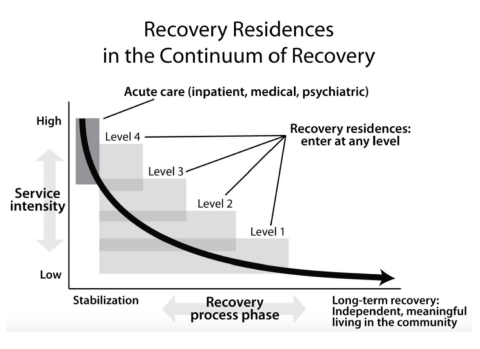Sign up to receive the Lt. Governor's Newsletter directly to your inbox!
Friend,
We’ve reached “crossover”, the deadline for legislators to vote bills out of policy committees before they are debated on the House or Senate floors.
Right now, there are a lot of important pieces of legislation being worked on. I want to update you on a number of them including legislation about the Vermont kid’s code, recovery residences, overdose prevention centers, and open meeting laws. You can find more on these bills towards the end of this newsletter.
Before that, I want to highlight one bill that will have a huge, positive, impact for Vermonter’s: the Climate Superfund (aka Make Big Oil Pay) bill.
Vermont Climate Superfund, Making Big Oil Pay
Vermont has been hit hard by the climate crisis. In a 12-year period, we’ve faced three “once-in-a-lifetime" floods that have devastated communities across the state. Additionally, our winters are getting warmer and shorter, negatively impacting our tourism industry. Extreme weather has led to several deaths such as four senior citizens who died due to a heat wave in 2018, seven Vermonters who were killed during Hurricane Irene, and countless more who have faced medical complications from air and water pollution.
When our communities face damages from climate disasters, it is Vermont taxpayers, individual homeowners and businesses that foot the majority of the bill for recovery. Last summer's flooding alone cost tens of millions in taxpayer money in addition to the out-of-pocket expenses that individuals needed to pay.
Meanwhile, Big Oil companies are raking in record profits while charging Vermonters some of the highest prices in history for heating and transportation fuels. Even worse, these companies have known for decades that their products and business practices were disrupting our environment and still chose to put their profits first. Though Big Oil companies have contributed disproportionately to the pollution that has caused the climate crisis, they have not been held accountable to pay their fair share of the cleanup. This is doubly frustrating because their increased prices are also a piece of the inflation that has hammered working people’s finances.
Vermont legislators have introduced S.259 to create a Vermont Climate Superfund. This bill would hold the largest Fossil Fuel corporations financially accountable for the damage they have caused to our environment and infrastructure.
What is a Climate Superfund?
In 1980, Congress created a Climate Superfund program that collects money from polluting companies in order to clean up toxic waste sites. This fund has been used to clean up over 1,000 sites around the country, many in Vermont, allowing them to be repurposed for housing, businesses and safe open spaces.
New York, Massachusetts, and Maryland have since created state-level climate superfunds that require Big Oil companies to cover some of their fair share of the costs of climate change. The legislation proposed in Vermont is modeled off of these successful programs.
What would Vermont’s Climate Superfund do?
If created, Vermont’s Climate Superfund would:
-
Hold Big Oil companies liable for a share of the costs of climate change adaptive infrastructure projects (in other words, projects designed to avoid, moderate, repair, or adapt to negative impacts caused by climate change).
-
Protect consumers by making it very difficult for fossil fuel companies to pass the cost on to consumers.
-
Save taxpayer money by making Big Oil companies pay at least a portion of the cost of inevitable climate-change driven expenses.
Why is this important?
In a civilized society, we would not expect the victim of someone else’s malfeasance to bear the burden of the impact of those actions. A person who is hit by a car in a crosswalk is not shamed for failing to jump out of the way. A restaurant patron that gets sick from eating tainted food is not held responsible for a kitchen not following safety standards. So why should you have to pay hundreds of dollars to clean up the mess that Big Oil companies knowingly made?
We’ve seen the impacts of the climate crisis grow worse every year. Despite this, fossil fuel companies have continued to expand their operations and increase their emissions while claiming to be working towards a cleaner future. Though we would wish to believe that these corporations will change their ways out of the goodness of their hearts, history has shown that short-term profits are too tempting and therefore this is not likely. By making them bear a larger part of the financial burden of the crisis that they have caused, they are more likely to take steps to invest in cleaner, more sustainable energy sources that will not exacerbate the problem.
We also know that the cost of climate change is rapidly increasing. One UVM study found that the cost of flooding in the Lake Champlain basin could cost as much as $5.2 billion over the next 100 years! Creating a Vermont Climate Superfund will help relieve Vermonters from some of the financial burden of these climate change related costs.
Vermont Kids Code
We are becoming increasingly aware of the damage social media is causing on our youth. With that knowledge, the Senate passed S.289, the “Vermont Kid’s Code”. This bill aims to create a safer online world for children by requiring tech companies to implement common sense practices of privacy and safety.
As you can clearly see from the chart below, social media in its current form has had a huge negative impact on children and teen’s mental health. You can learn more about the specifics of the Vermont Kid’s Code here.
This bill has just passed the Senate and will now be deliberated on in the House.

Recovery Residences
We all know far too many Vermonters are afflicted with substance abuse disorder. The evidence is clear that comprehensive recovery models are far more effective at helping people remain sober. S.186 aims to evaluate existing recovery residences and recovery communities and create a cohesive system of care for those going through recovery programs.
Recovery residences are homelike settings for individuals recovering from alcohol and substance use disorders that provide peer support, an alcohol and drug free environment, and assistance with support services and community resources. These residences are an important option for many who are seeking treatment for their addictions. They help reduce substance use, lower the likelihood of relapse, improve financial stability and enhance family relationships.
S.186 has passed the Senate and will now be deliberated in the house.

The above chart demonstrates how important Recovery Residences are for comprehensive recovery.
Overdose Prevention Centers
Decades worth of peer-reviewed research on Overdose Prevention Centers (OPC’s) in over a dozen countries tells a powerful story: OPCs save lives and improve health outcomes, are an effective pathway to access treatment, reduce public drug use and related litter, and don’t result in an increase in criminal behaviors. As the Opioid crisis continues to affect more and more Vermonters, we must explore different ways to get people into recovery and save lives.
The Vermont House has passed H.72, a bill that would create two pilot OPC’s in Vermont so we can further explore how these centers may help those with substance use disorder. These centers would be staffed with personnel trained to identify and respond to the earliest signs of overdose. They would also be a way for people to access information about services and programs to help them on the path to recovery.
H.72 is now making its way through the Senate. If you would like to voice your support for this bill, you can add your name to a letter urging the passage of this legislation.
Open Meeting Law
When the COVID-19 pandemic began, Vermont’s legislature quickly worked to amend open meeting laws to allow public bodies to meet virtually and continue their work. Across the state, due, in part, to those changes, we have seen increased participation in our civic process. With that knowledge and public acclamation to the new technology and expanded broadband access, the Senate passed S.55. This bill makes some of these emergency measures permanent and adopts a few additional measures to enhance accessibility and transparency in our government.
The Senate Government Operations Committee produced this 1-page summary of the provisions in the bill. You can review them here.
This bill has passed the Senate and will now be deliberated on in the House.
-----------------------------
These are just a few of the many important bills that are making their way through the legislature right now. I will try to keep you updated on more of these bills over the next few weeks.
One last thing to share: Vermont movie producer Bess O’Brien has just released another important and impactful film, Just Getting By. This movie focuses on the economic duress that many face as they are unable to find or pay for long-term housing or put food on the table. This film puts a human face on the homelessness crisis we are facing. It is critical to understand the wide variety of circumstances people face that have impacted their ability to find and afford housing and basic needs.
Just Getting By will be on tour across the state March 22nd- April 12th. Each event will have a panel discussion following the screening (I will be joining the panel after the Burlington screening this Friday!) I encourage everyone to see this film and spread the word about it. Click here to learn more.
-----------------------------
We encourage you to contact your legislators and the Governor’s office on this issue and other issues that are important to you. The communications between you and your legislators can truly have a positive impact on pending legislation. In Vermont we are fortunate that our scale allows for productive dialogue (whether we always get what we want or not.) If you enjoy this newsletter, please share it with friends. Folks can sign up to receive this newsletter directly to their inbox by signing up here.
Lt. Governor David Zuckerman
